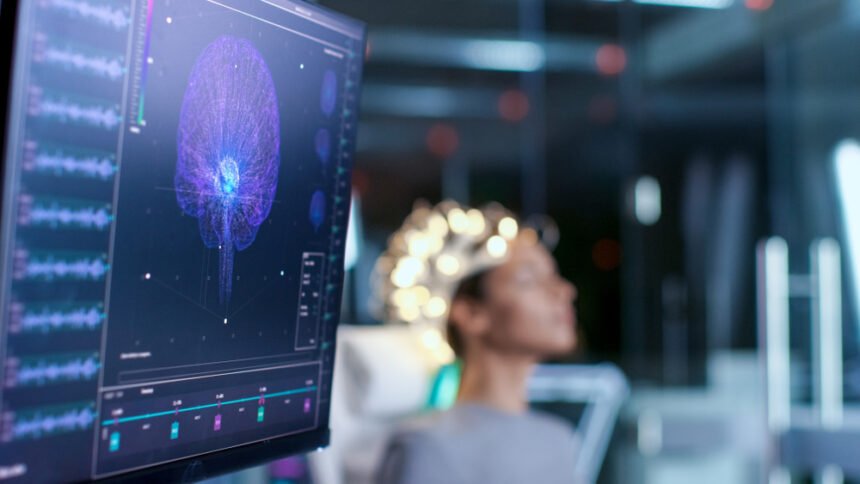We all know the importance of a good night’s sleep for our overall health and well-being. However, there are times when sleep seems to play hard to get, even during a sleep study designed to monitor and diagnose sleep-related issues. If you’ve ever found yourself in a sleep study unable to fall asleep, you’re not alone. In this article, we’ll explore the causes of sleep study sleeplessness, effective coping strategies, and potential solutions to ensure you get the most out of your sleep study experience.
Understanding Sleep Study Sleeplessness
A sleep study, also known as a polysomnogram, is a comprehensive evaluation of your sleep patterns, which involves monitoring various bodily functions while you slumber. It is commonly used to diagnose sleep disorders such as sleep apnea, insomnia, restless leg syndrome, and narcolepsy, among others.
However, it’s not uncommon for individuals to find it challenging to fall asleep in a clinical setting, surrounded by wires and unfamiliar surroundings. Let’s delve into the factors that contribute to this sleep study sleeplessness:
1. Anxiety and Nervousness
The thought of being observed and the anticipation of a potentially life-altering diagnosis can trigger anxiety and nervousness. This anxiety can make it difficult to relax and fall asleep, especially during the initial stages of the sleep study.
2. Unfamiliar Environment
Sleep studies are typically conducted in a lab or clinic, which may not resemble your bedroom at home. The unfamiliar environment, along with the presence of monitoring equipment, can disrupt your usual sleep routine and make it challenging to doze off.
3. Sleep Disorders
Ironically, one of the reasons you may be undergoing a sleep study is to diagnose a sleep disorder. If you already have a sleep disorder, such as insomnia or sleep apnea, it can make it more difficult to fall asleep during the study.
4. Discomfort
The sensors and wires attached to your body during a sleep study can be uncomfortable, which might make it hard to find a comfortable sleeping position.
Dealing with sleep study sleeplessness can be challenging, but it’s important to remember that it’s a common occurrence. The causes can vary, but with the right coping strategies and communication with the sleep study staff, you can improve your chances of getting valuable data from the study.
Coping Strategies for Sleep Study Sleeplessness
While it’s common to experience sleeplessness during a sleep study, there are several strategies you can employ to help you relax and increase your chances of falling asleep:
1. Practice Relaxation Techniques
Before your sleep study, consider practicing relaxation techniques such as deep breathing, meditation, or progressive muscle relaxation to reduce anxiety and nervousness.
2. Bring Comfort Items
If your sleep study facility allows it, consider bringing familiar items from home, like your own pillow or a favorite blanket. These can provide a sense of comfort and familiarity in an unfamiliar environment.
3. Stay Positive
Maintaining a positive mindset can help alleviate anxiety. Remember that the results of the sleep study are crucial for identifying and addressing any sleep-related issues.
4. Focus on the Process
Instead of fixating on falling asleep, focus on the process of relaxation and rest. This change in mindset can take the pressure off and make it easier to drift into slumber.
Solutions to Overcome Sleep Study Sleeplessness
If sleep study sleeplessness persists, it’s essential to discuss it with the sleep study staff. They are there to help and can offer solutions tailored to your specific situation:
1. Extended Sleep Study
In some cases, your sleep study may be extended to allow for a more extended window for you to fall asleep naturally.
2. Medication
In certain situations, your healthcare provider may prescribe medication to help you relax and fall asleep during the study.
3. Home Sleep Study
For those who find it extremely challenging to sleep in a clinical setting, home sleep studies may be an alternative. These studies allow you to undergo sleep monitoring in the comfort of your own home.
4. Behavioral Therapy
If anxiety and sleeplessness are persistent issues, cognitive-behavioral therapy for insomnia (CBT-I) can be a highly effective option. This therapeutic approach can help you address the underlying causes of your sleeplessness and develop healthy sleep habits.
In Conclusion
Experiencing sleep study sleeplessness can be frustrating, but it’s important to remember that it’s a common occurrence. The causes can vary, but with the right coping strategies and communication with the sleep study staff, you can improve your chances of getting valuable data from the study.
If you’re scheduled for a sleep study or have experienced sleeplessness during one, don’t be disheartened. There are ways to make the experience more comfortable and productive, ultimately helping you get on the path to better sleep and improved health. So, stay positive, relax, and remember that you’re taking a significant step toward understanding and improving your sleep patterns.










